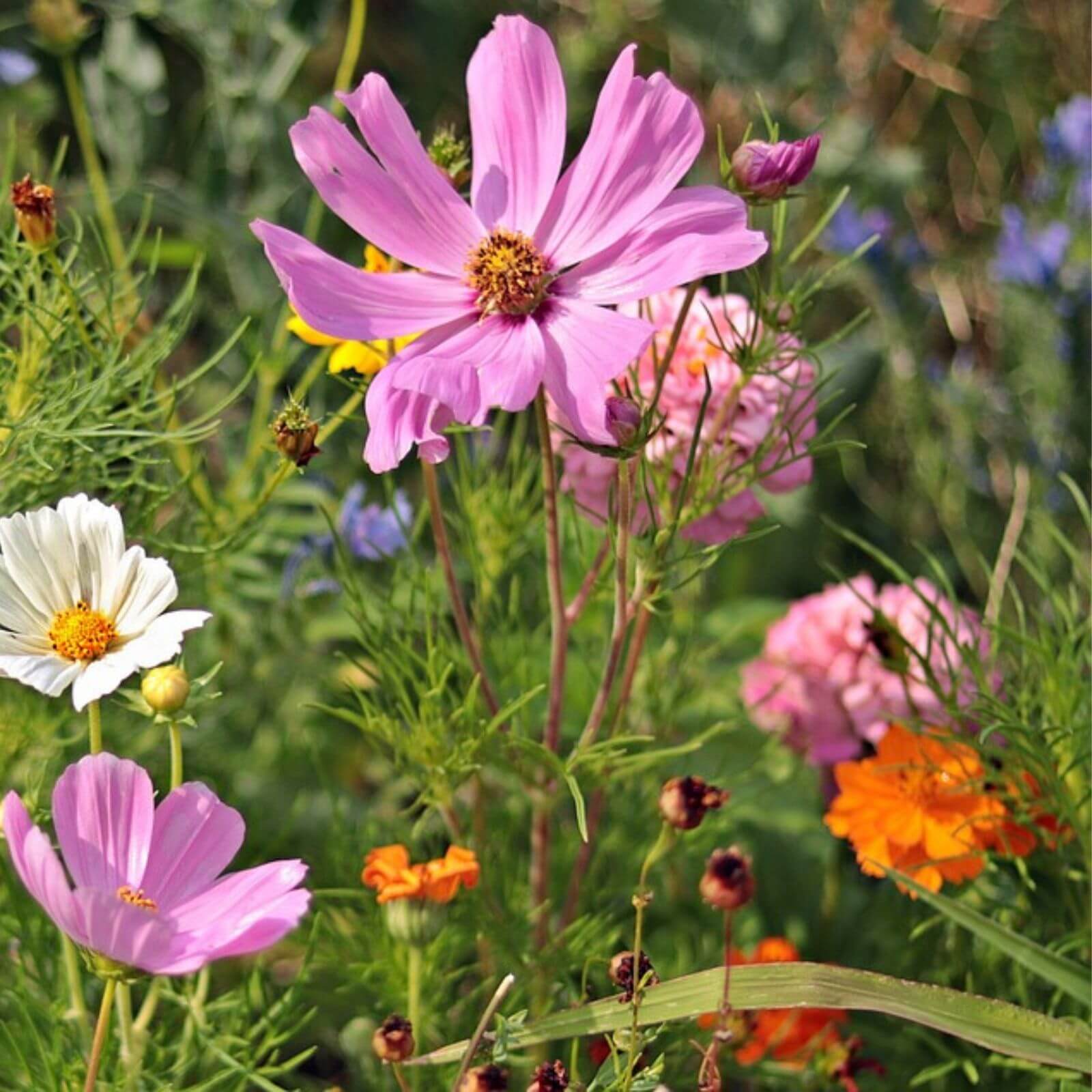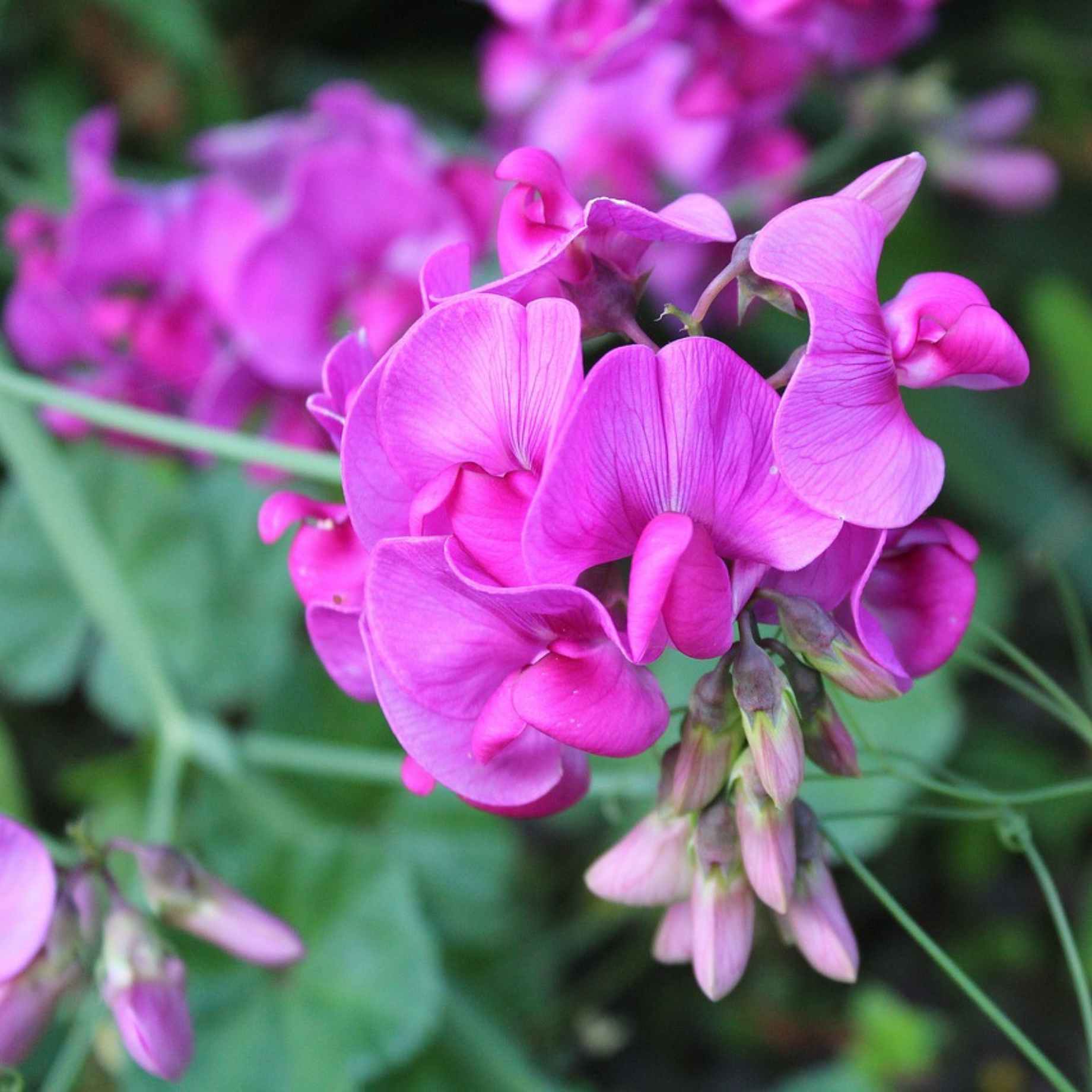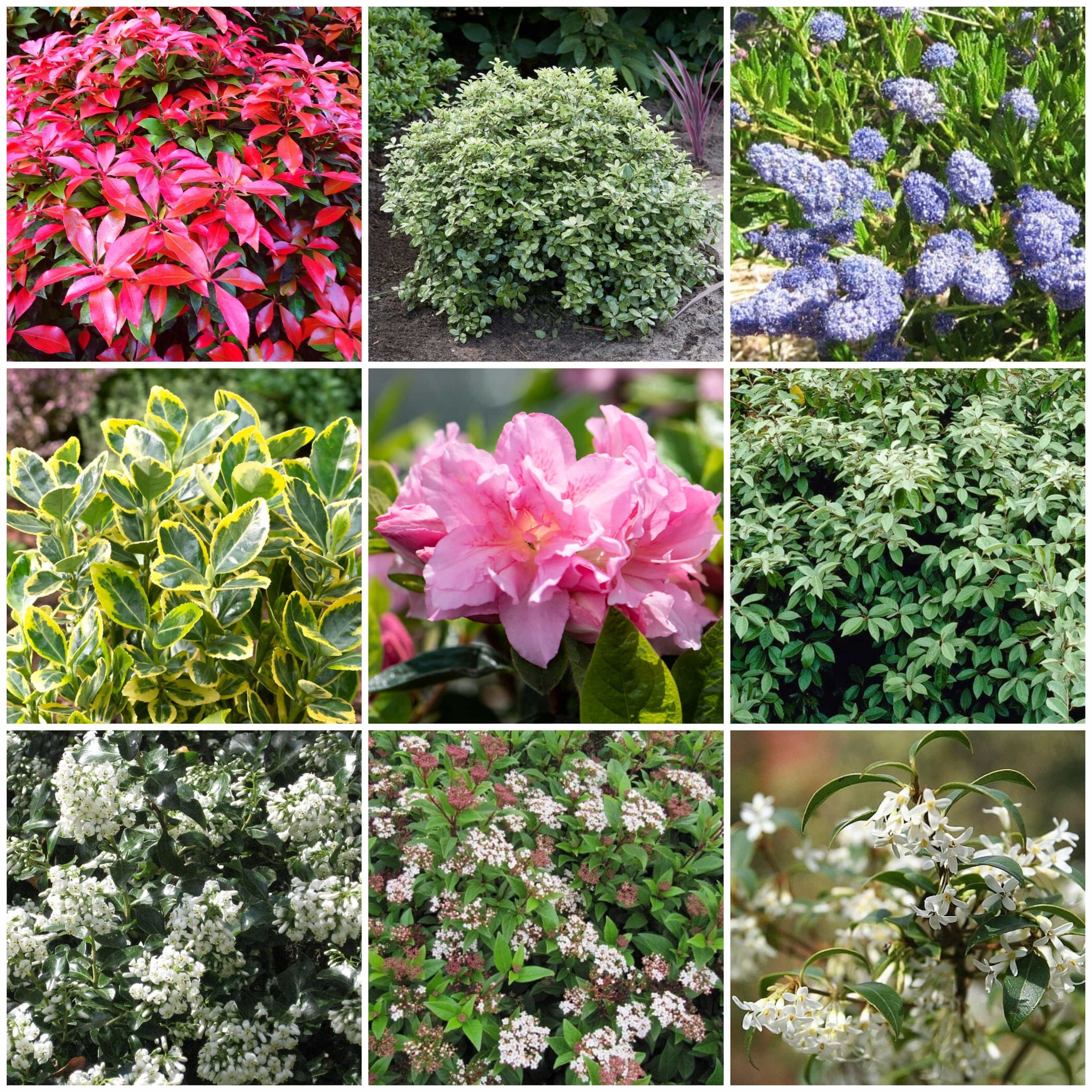Advice & Inspiration
How to Make Your Own Compost
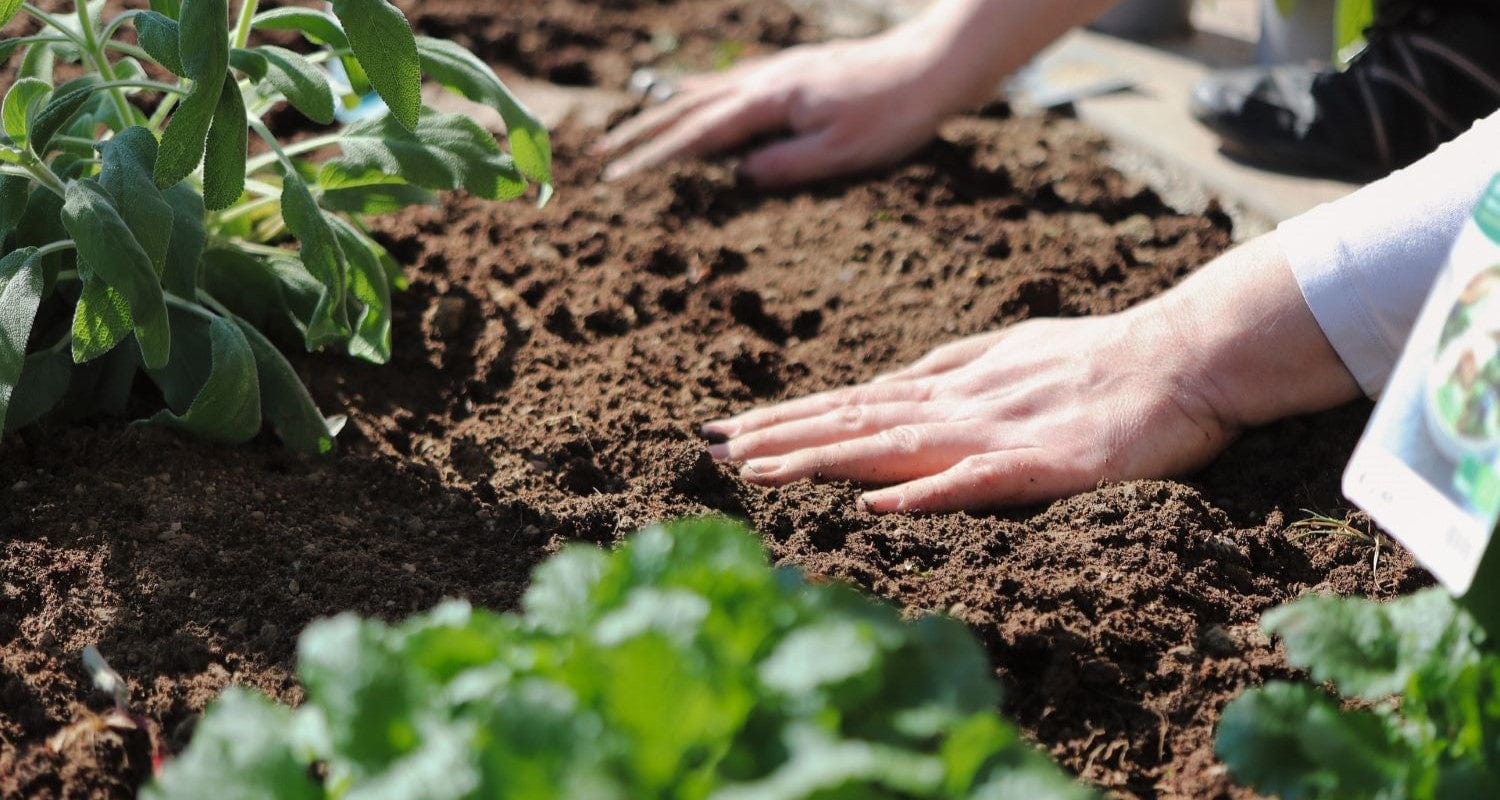
Everything you grow in the garden benefits from compost: it's vital for providing nutrition and improving the texture of soil. By making your own, you can become more self-sufficient, live more sustainably and save money too - here's how.
Choose your composter
You can buy a purpose made compost bin. Alternatively, you can construct your own container using a material such as wood, or use a normal bin or large bucket.
If you make your own composter, at the very least it will need adequate drainage holes at the bottom. Purpose compost bins tend to have no bottom at all as they are usually positioned on the earth where worms and microbes can reach the compost and promote the composting process.
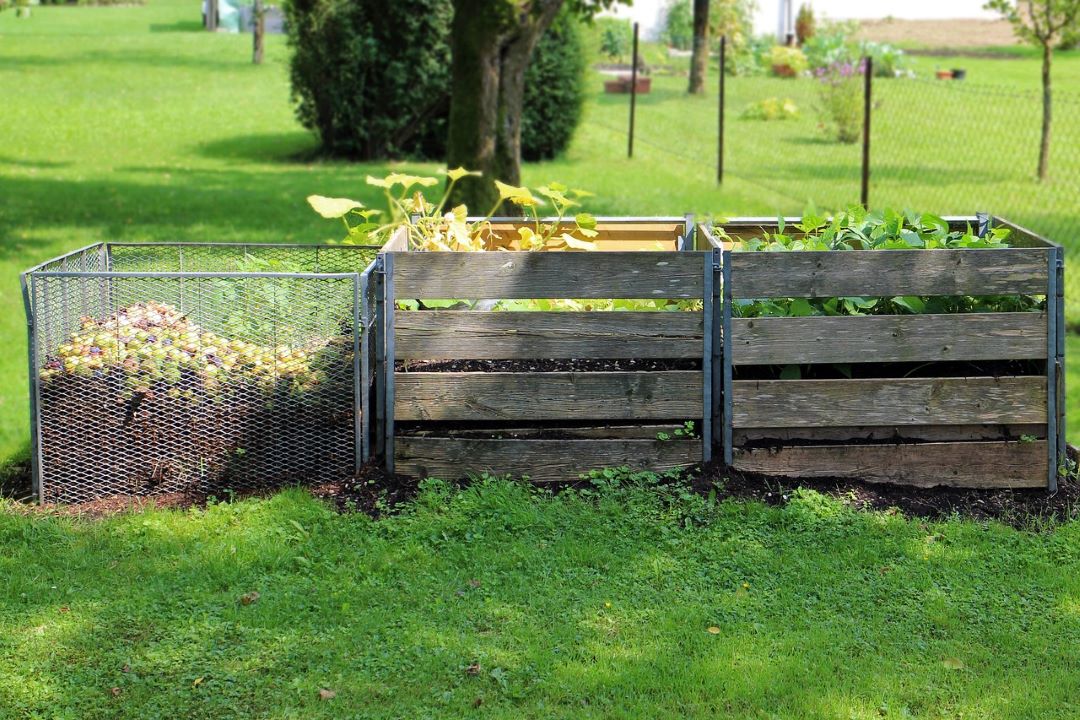
Get composting
- Start by placing small twigs, shredded bark and straw down at the bottom to help improve drainage.
- Add your waste. (See below to get the balance right!)
- Add soil - Adding soil to the mix will help to introduce beneficial microbes to break down the soil faster.
- Keep the pile moist. Make sure it doesn’t dry out, especially during hot summer spells. However, don't allow the pile to become waterlogged as this will drown the microorganisms and prevent breakdown. Usually if the pile is too wet it will start to produce a bad smell, the matter may become clumped together and not crumble apart. Ensure there is good drainage - if it is too wet then add some more dry brown matter.
- Turn the pile. The microorganisms in the pile need fresh air to breath and to help break the pile down. Therefore you want to regularly turn the pile with a garden fork. If when you do this, there is steam rising from the pile (more noticeable when it is cold) then rest assured the composting process is working!
- Wait 2-3 months. It usually takes around 2-3 months for organic matter to compost, with the process accelerating the warmer it becomes.
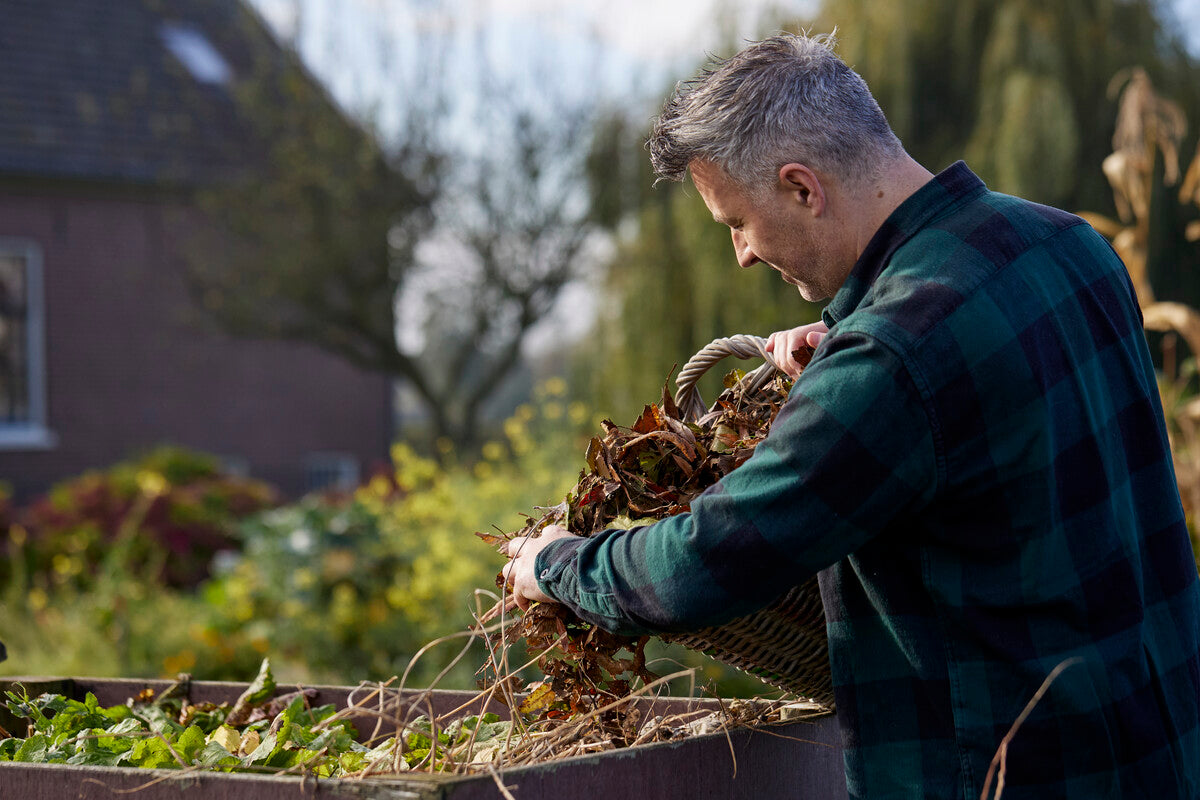
What to add
- Vegetable peelings and waste (bananas are great for adding more potassium into the compost)
- Egg shells
- Dried leaves
- Garden waste (do not add waste if you have cut it away because it carries an infectious disease, however)
- Shredded newspaper
- Cardboard – as long as there is no plastic at all in the packaging
- Straw and hay
- Cow, horse, chicken, sheep, goat manure
- Used coffee grounds and used tea without the bags
- Ash or sawdust from burnt untreated wood
- Shredded bark
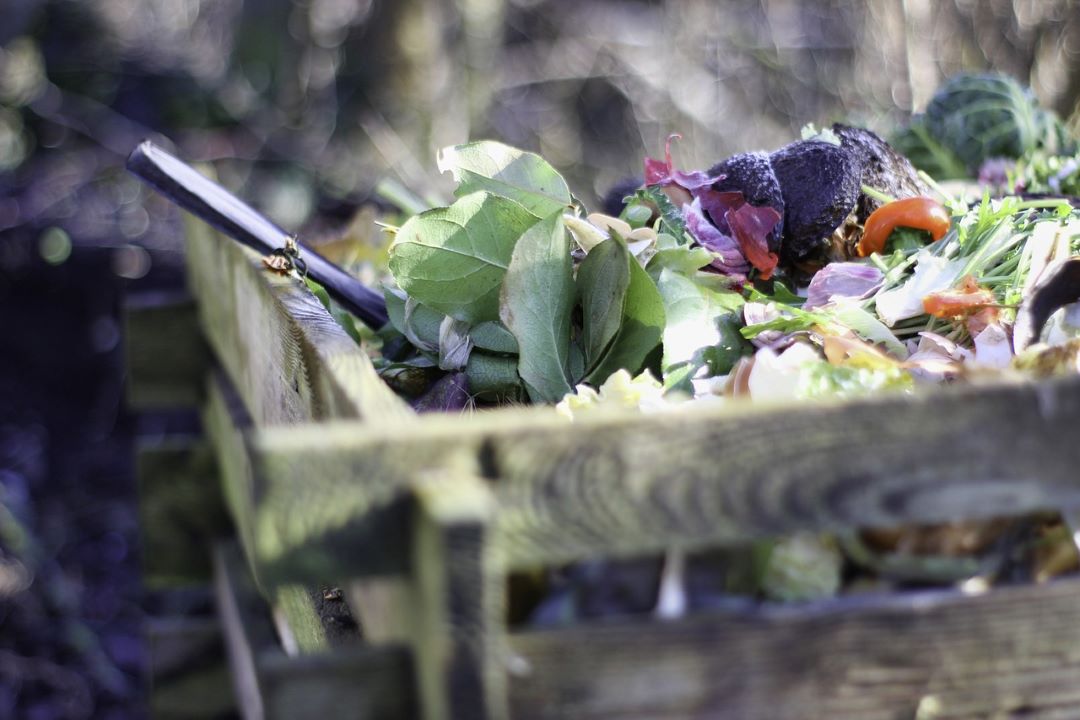
What not to add
- Meat or fish
- Cat or dog manure
- Oil or grease
- Ash or sawdust from treated wood
- Dairy products
- Glossy paper such as magazines
- Coal-fire ash
- Large tree branches (these will absorb nitrogen)
Getting the balance right
The type of matter you throw into your compost pile is usually classified as either ‘brown’ which adds carbon or ‘green’ which adds nitrogen.
Brown matter includes dried leaves, sawdust or shredded bark, newspaper or cardboard, straw or hay. Green matter includes fresh kitchen and garden waste and manure.
Aim for a ratio of three parts brown to one part green for the perfect compost. However, if the compost looks wet and slightly slimy, then you should add more brown matter. If it looks dry and hard, then you should add some more green material and a bit of water.
When your compost becomes dark and crumbly, it is ready to spread around the garden, enriching your soil and feeding your plants. Happy composting!




